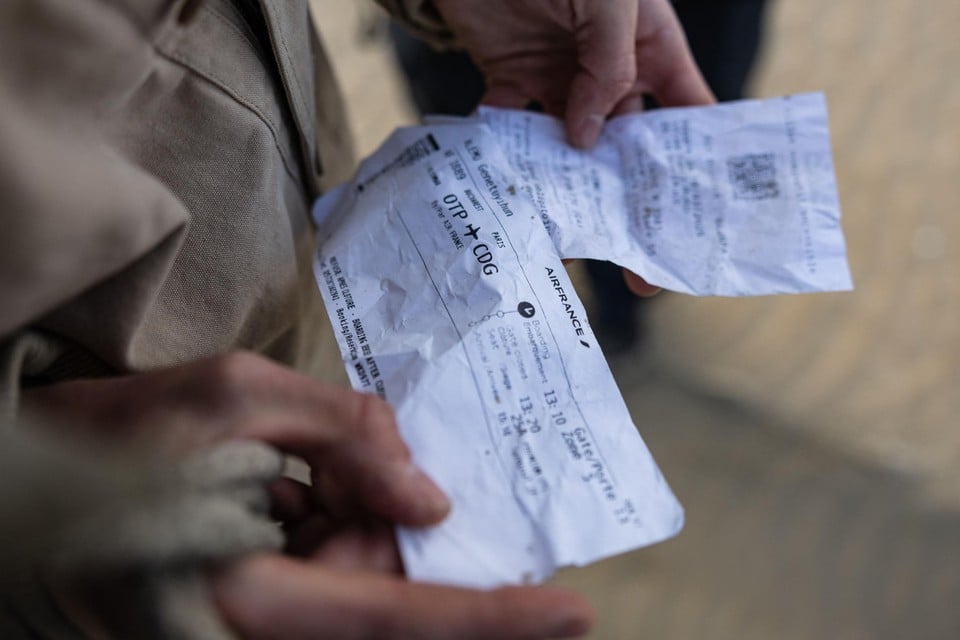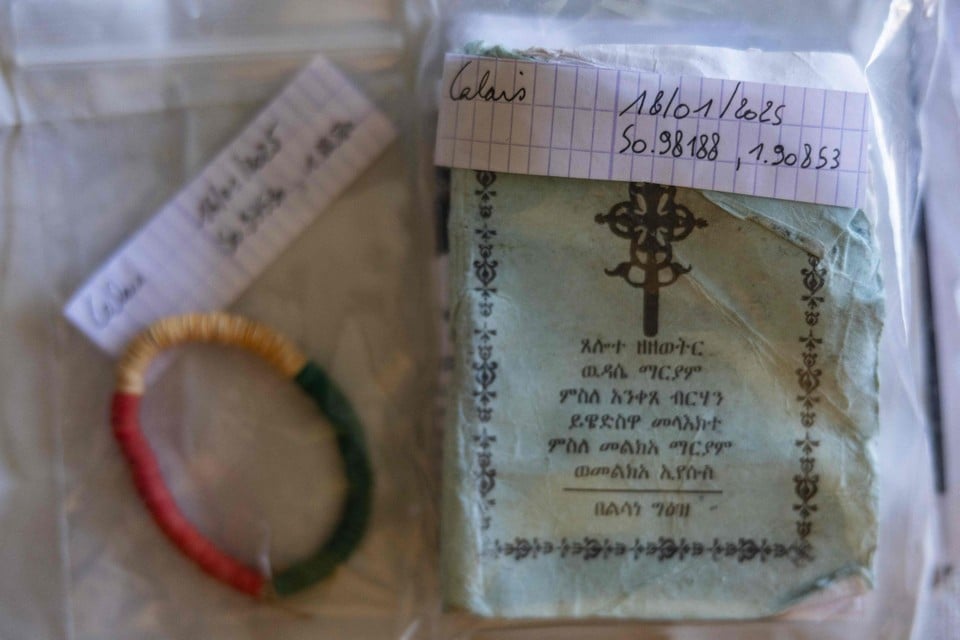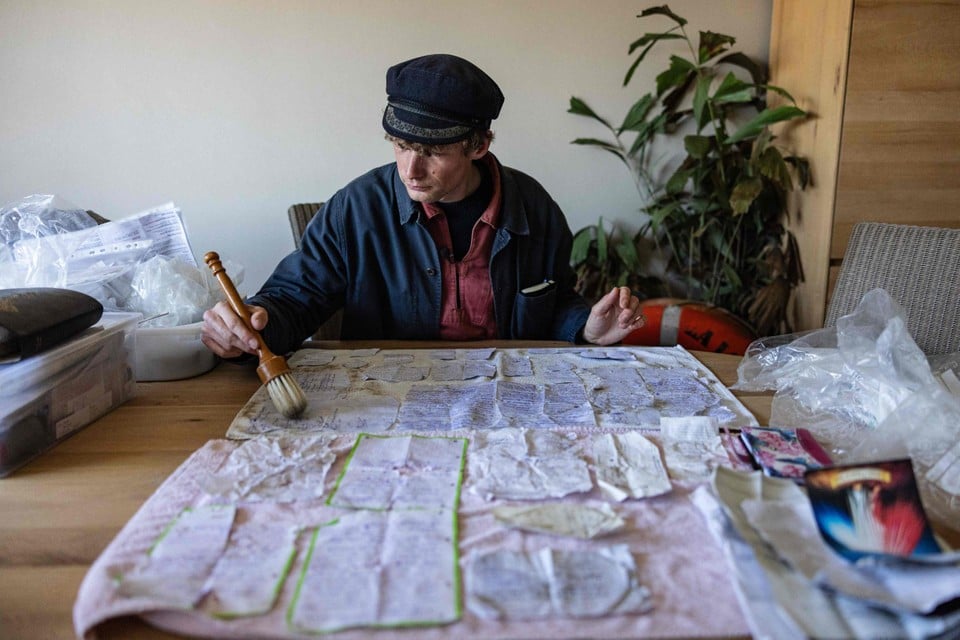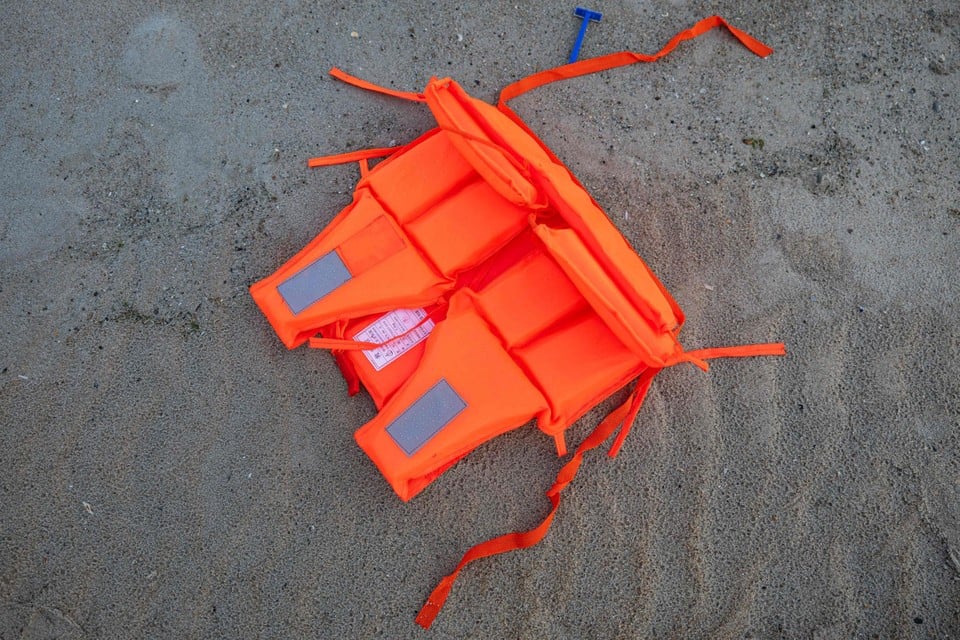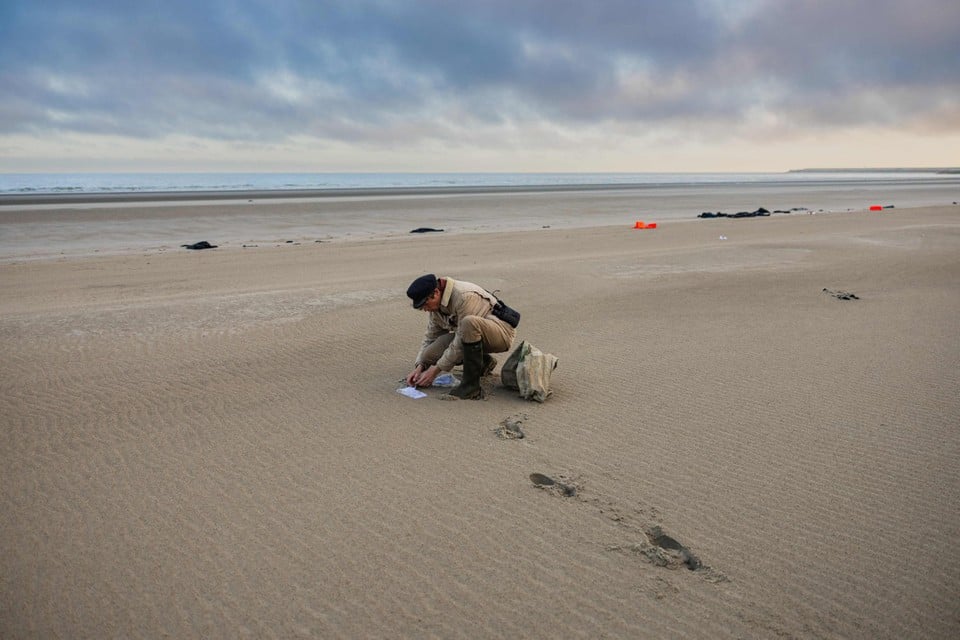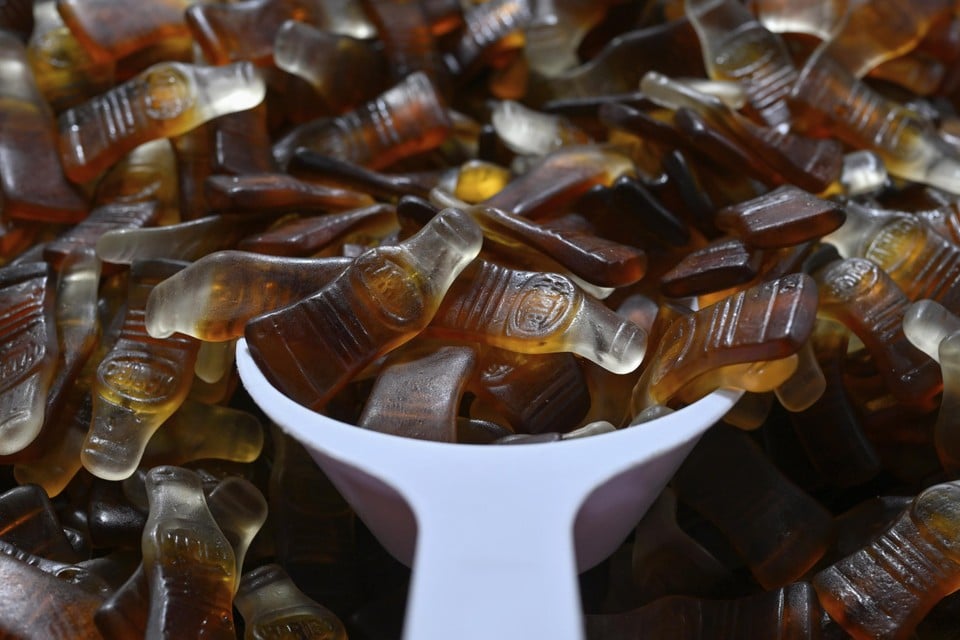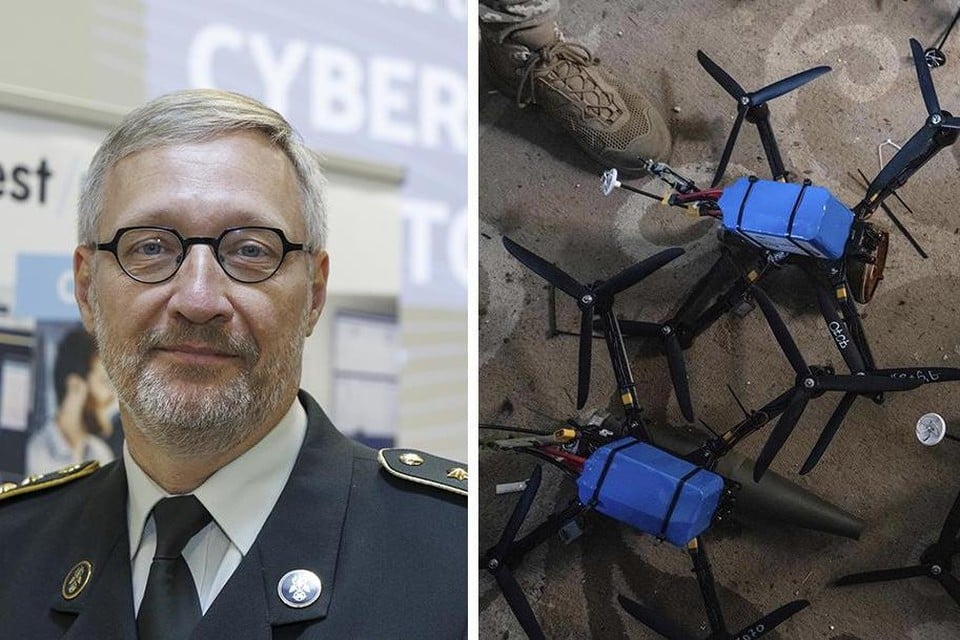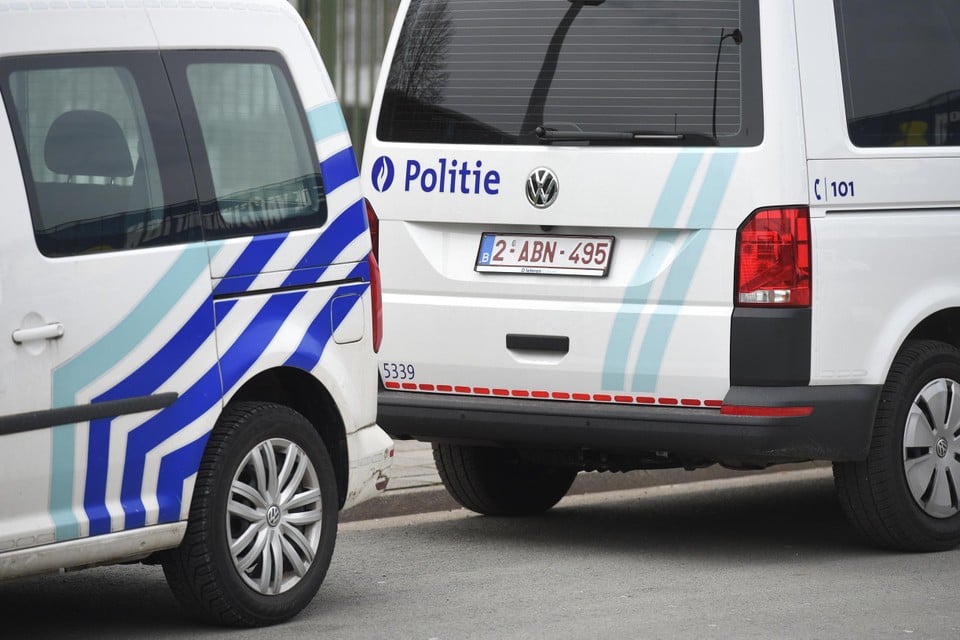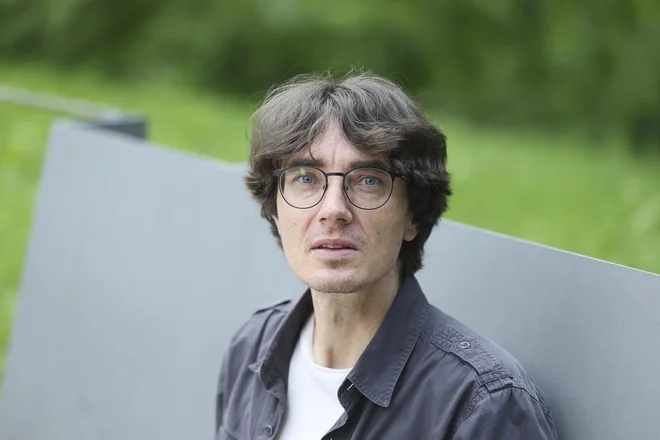Belgian beachjutter collects objects from migrants who make the crossing: « Otherwise it will be lost »
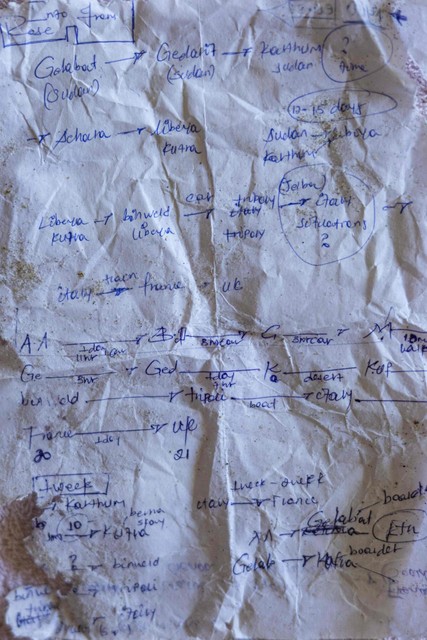
The travel route from Rose, from Ethiopia to England.
It is on the beach of Grevelingen, in the French Westhoek, that Agence France Press (AFP) walks with the Belgian beachjutter Aaron Fabrice de Kisangani. They find a note there. « Ethiopia, Sudan, Libya, Italy, France and United Kingdom, » it says on a sheet of paper eaten by sand and water. It is a route of thousands of kilometers that extends over two continents, in all likelihood traveled by a migrant who left the paper on the way to England.
It is one of the many objects that these people leave behind when they jump in small boats to cross the channel. Sometimes they lose things because they have to be fast. At other times things are thrown away to be able to travel lighter.
Over the past two decades, 27-year-old Aaron Fabrice de Kisangani has already found a lot of unusual things on the beach. From exotic seeds to shark teeth. But it is not with Fauna and Flora, also American buoys and a washed -up block of rubber from Java already crossed his path. With the latter he got also the news.
Stories
Whatever he saw: things left by migrants. Until a year ago, however, he had never given those things much attention. « I thought: why don’t I take it with me? Otherwise it will be lost, » he says AFP.
Read too. Record number of migrants crossed Kanaal to VK in the first quarter of 2025
The handwritten note is probably from an Ethiopian woman called Rose. Or that is the name that is listed at the top. Rose Pende down a very precise travel route, with times and means of transport. The journey starts with « AA » which stands for Addis Ababa, the capital of Ethiopia. 800 kilometers and 17 hours further, she would arrive by car in Metema, on the Sudanese border. And then she would have to walk ten minutes, according to the plan, to reach the village of Gallabat.
A plane and train ticket, with Dunkirk as the final destination. – © AFP
Then Khartoem, the capital of Sudan, follows by thousands of kilometers through the desert. And then Tripoli, in Libya. The last stop before Rose goes to Europe. And then over the sea, to Italy. Followed by a train journey to France. With the last destination: the United Kingdom. Aaron does not know whether Rose ever made it, and whether she stayed with that specific travel route. It is one of the many stories he encounters on the beach, stories that he never knows the end.
« Making human »
That morning he finds other excerpts from a life in exile: a summons about an extension of an Albanian in custody, tickets for a flight from Bucharest to Paris and a train ticket to the last European destination: Dunkirk.
Read too. Nearly 37,000 migrants were able to reach United Kingdom with boats illegal in 2024
« These objects can help to make these people human again, because it tells their story. I want to show the problem as a Jutter from a different perspective, » says Aäron Fabrice de Kisangani. Although he also admits that he does not yet know what he will do with the objects. In the meantime, the finds have already « learned a lot about the migrants, about how they travel and how fast ».
Aaron keeps the found objects carefully, although he does not yet know what he will do with it. – © AFP
When the interview and the walk walk to his car again, he sees a scene that is in the neighborhood in the area in the meantime daily costs: dozens of migrants suddenly come from the dunes ran to a boat waiting for them in the water. They are stopped by the police, but with a new attempt, most of them succeed in reaching the boat.
Read too. Last year more than 120,000 illegal pushbacks, says 11.11.11
« A crying child was heard. A man, one of the three family members who didn’t make it, insisted on his mother to climb the boat. That happened without success, » writes the AFP journalist. They are such scenes that illustrate the vulnerability of the company. Together with the found pieces on the beach, they are part of a larger puzzle that often remains unfinished.
Aaron gets the sand from the many notes and papers that he finds on the beach. – © AFP
One of the many things that are left on the beach. – © AFP
Aaron Fabrice de Kisangani at work in northern France. – © AFP

